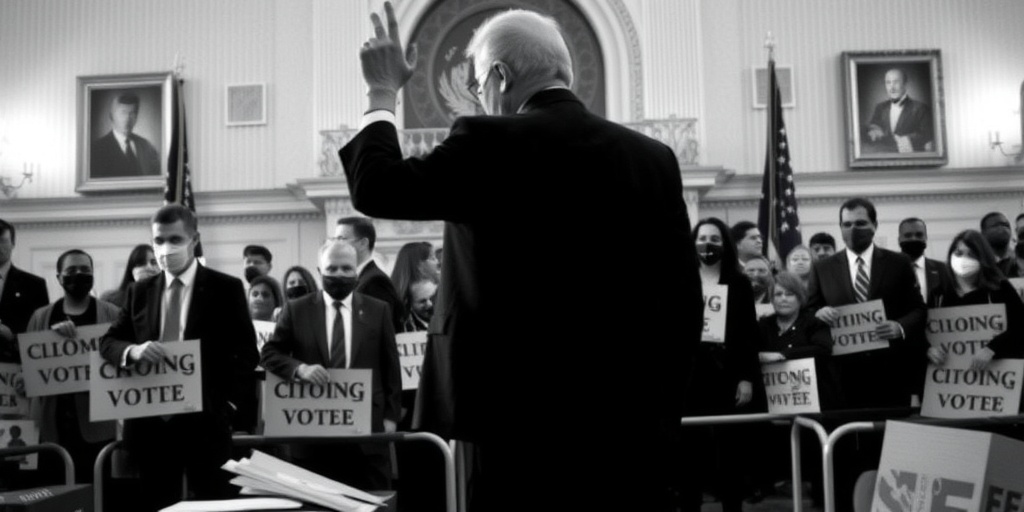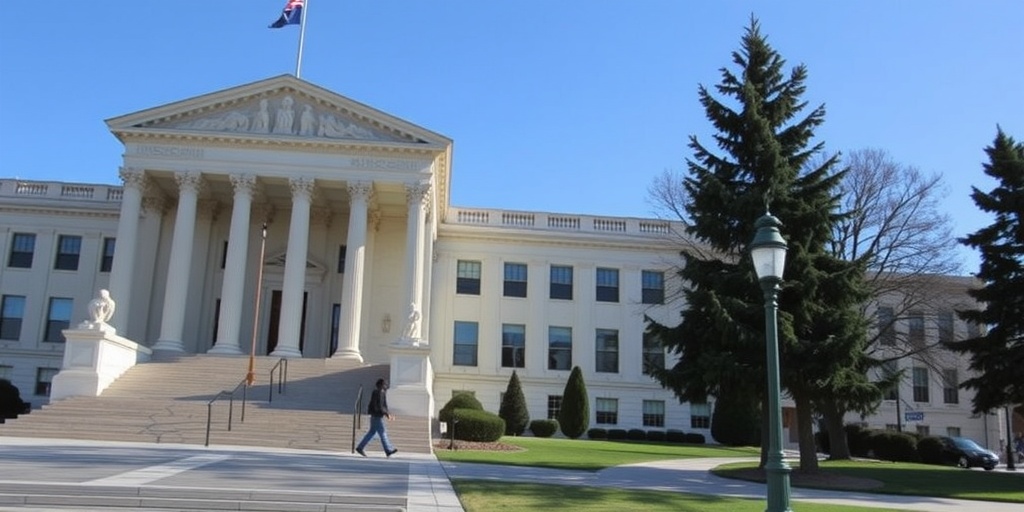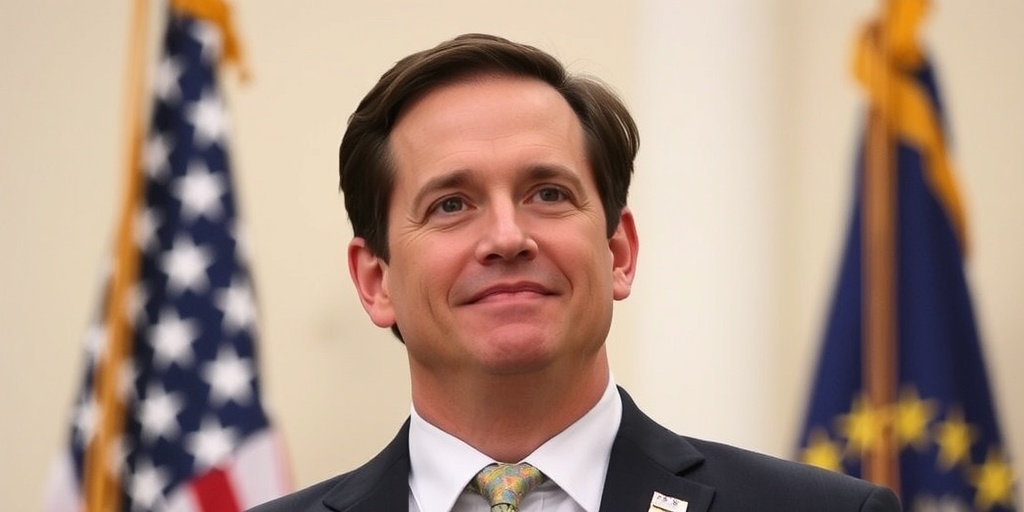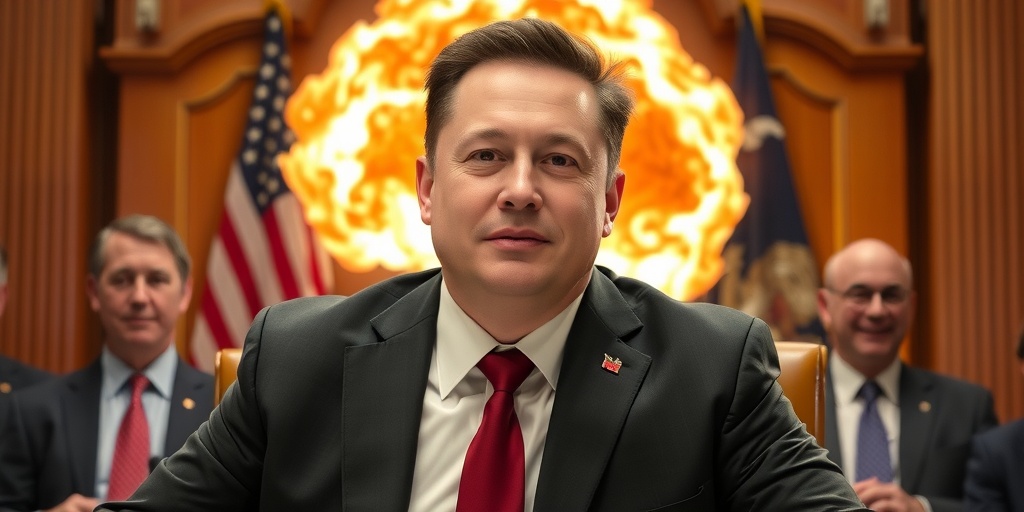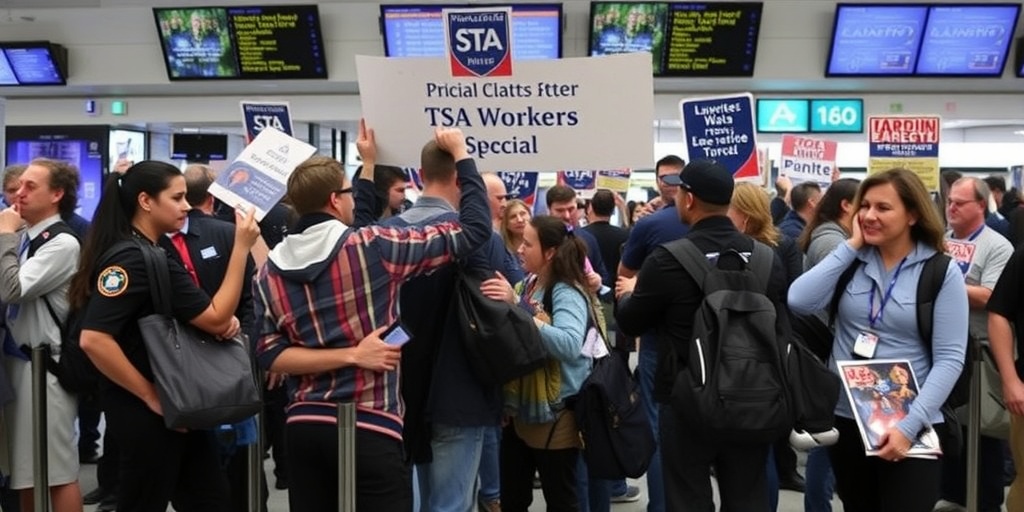Now Reading: Trump Administration Sends Controversial Survey to Researchers
-
01
Trump Administration Sends Controversial Survey to Researchers
Trump Administration Sends Controversial Survey to Researchers
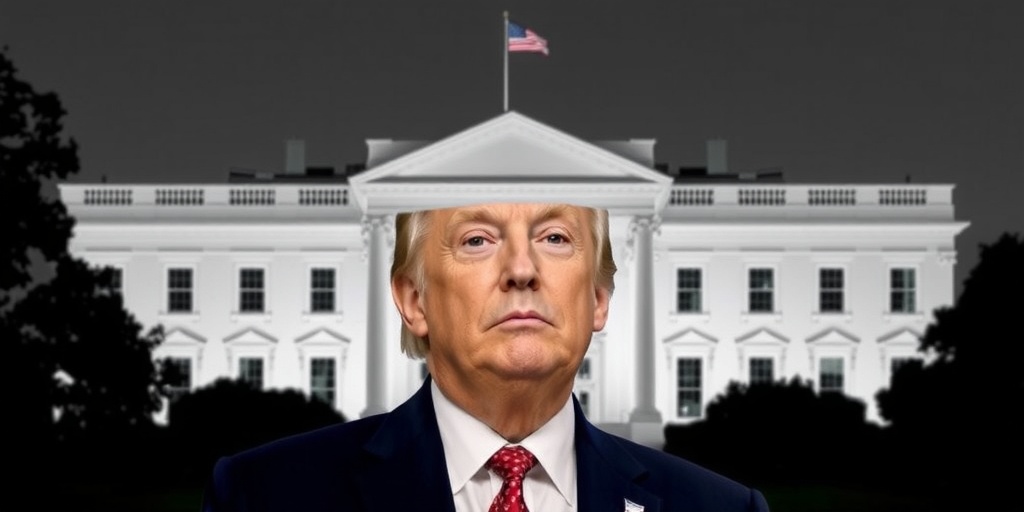
Trump Administration Tightens Scrutiny on Foreign Aid Recipients with New Questionnaire
The Trump administration is intensifying oversight of organizations conducting research and providing health services overseas, issuing a new questionnaire that demands disclosures regarding ties to entities deemed hostile. This includes organizations connected to communist, socialist, or totalitarian parties, as revealed by a document obtained by The New York Times.
The online survey was dispatched to various research groups that are engaged in critical health initiatives, such as combating diseases like HIV, gathering surveillance data, and bolstering public health systems. These organizations typically receive funding from major federal agencies, including the Centers for Disease Control and Prevention (CDC) and the United States Agency for International Development (USAID).
This recent questionnaire bears striking similarities to a previous one directed at USAID partners, a program that has been significantly curtailed under the current administration. Dubbed the "Foreign Assistance Review," both documents share a common goal of reassessing and, potentially, redefining the scope of U.S. foreign aid.
Recipients of the survey were given a swift 48-hour window to respond, raising concerns among many organizations. Several grantees expressed apprehensions that any misstep or unsatisfactory answer could jeopardize their funding, a reality they must navigate in an increasingly restrictive funding environment.
Among the troubling statements in the questionnaire was a declaration emphasizing that taxpayer dollars should not support dependency or socialism, nor should they finance “corrupt regimes that oppose free enterprise.” The questionnaire articulates a vision of a prosperous America that prioritizes domestic economic growth and innovation over foreign assistance.
A White House spokesperson has yet to provide comments regarding the survey or the motivations behind its implementation. The form comprises questions that probe the affiliations and collaborators of grant recipients, including inquiries about any connections to drug cartels or groups responsible for promoting mass migration.
Additionally, it presses grantees to reflect on the impact of their programs on broader issues, such as the promotion of religious freedom and the combating of Christian persecution in other nations. Notably, the questionnaire inquires whether any funding or collaboration flows from countries that have contentious relations with the U.S., including Russia, Cuba, Iran, or China. Specific mention was made of affiliations with the Confucius Institute, an organization working to enhance Chinese language and cultural exchange programs within American educational settings.
The scrutiny was met with skepticism from some federal officials responsible for overseeing these grants, particularly concerning the question regarding associations with communist entities. The U.S. has actively engaged in health work within several communist nations, including Vietnam.
One anonymous federal official voiced profound concern, stating, “Some of my grantees are literally the public health government structures in a communist country. This is painful.” This sentiment reflects the complicated nature of international aid and collaborations, especially when entangled with national political narratives.
Currently, grants and contracts within the foreign assistance landscape are undergoing rigorous reviews amidst a 90-day pause on foreign aid, which has resulted in the cancellation and restoration of several awards over recent weeks. Following intervention from the Supreme Court, the federal government was ordered to resume foreign aid payments, underscoring the contentious backdrop against which these changes are occurring.
Since the dissemination of the questionnaire began, confusion has reigned. Grantees have reported receiving differing deadlines for submission, with some being granted extensions while others were denied the same privilege. The varied deadlines have made compliance challenging, as recipients scramble to provide thorough answers amidst a flurry of incoming inquiries.
Among those receiving the survey were scientists from prominent universities and small organizations engaged in health initiatives across the globe. Notably, some questionnaires may have been mistakenly sent, as in the case of Maine’s health department receiving one in error.
The structure of the questionnaire requires that answers be submitted in one continuous sitting without an option to save progress, which has posed additional challenges for busy researchers. The estimated completion time for such an elaborate form, which includes the accumulation of necessary data, is set at around 30 minutes, though many find this timeline unrealistic given their ongoing commitments.
A scientist, who chose to remain anonymous to avoid repercussions, commented on the chaotic nature of the recent disruptions: “The chaotic way in which these stop work orders, terminations, waivers, reinstated awards, surveys — all with rapid deadlines and minimal communication — have been distracting and incredibly disruptive.” As a result, many American grantees are now seeking legal advice on how to best articulate their responses to the questionnaire, a measure that underlines the uncertainty they face.
Organizations based overseas are particularly disadvantaged in this situation, as the Trump administration’s communications pause limits them from speaking with federal officials who could offer assistance. Instead, grantees are restricted to communicating solely with American representatives within their host countries.
One federal official highlighted the stakes involved, stating, “They could lose the vital funds they need to do their work if they don’t answer these questions appropriately.” This comment encapsulates the gravity of the current landscape for international health assistance, as organizations navigate the challenging waters of compliance and reporting in an increasingly scrutinized arena.
Stay Informed With the Latest & Most Important News
Previous Post
Next Post
-
 01New technology breakthrough has everyone talking right now
01New technology breakthrough has everyone talking right now -
 02Unbelievable life hack everyone needs to try today
02Unbelievable life hack everyone needs to try today -
 03Fascinating discovery found buried deep beneath the ocean
03Fascinating discovery found buried deep beneath the ocean -
 04Man invents genius device that solves everyday problems
04Man invents genius device that solves everyday problems -
 05Shocking discovery that changes what we know forever
05Shocking discovery that changes what we know forever -
 06Internet goes wild over celebrity’s unexpected fashion choice
06Internet goes wild over celebrity’s unexpected fashion choice -
 07Rare animal sighting stuns scientists and wildlife lovers
07Rare animal sighting stuns scientists and wildlife lovers













